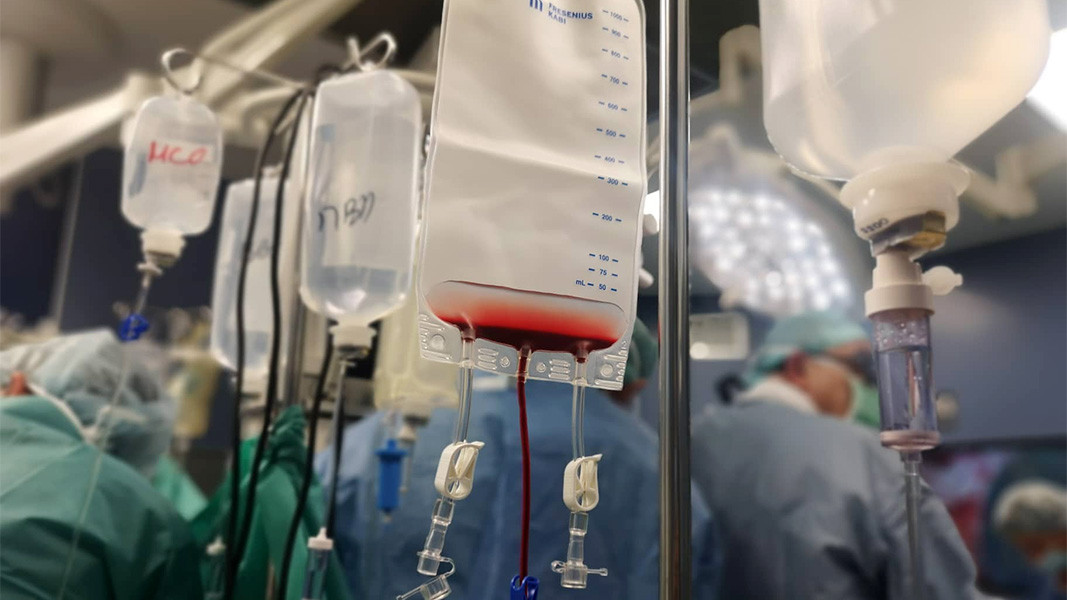The former government hospital – Lozenets – is implicated in a criminal scheme for organ transplants of foreign citizens, and there are serious infringements of the transplant surgery procedure in this country, with people jumping the queue after “orders from the top”. These shocking revelations were made a few days ago by caretaker Minister of Health Dr. Stoycho Katsarov. Because of the small number of donor situations in the country that come to fruition and the growing number of Bulgarian citizens in need of transplant surgery, the scandal resonated strongly in the media.
“Bulgaria has for years been a trafficking route for living donors,” Assya Paskaleva from the Bulgarian Centre for Bioethics said, in an interview for BNR, and commented that she is not surprised that this kind of illegal activity is still going on. She describes the practice of “jumping the line” for organ transplants as shocking and outrageous.
“In transplant surgery there is one key word – trust. If we want to have organ donation we must have trust, and this scandal is murdering trust. These things that have been happening are monstrous,” the only double transplant patient in this country – Georgi Peev from Haskovo – said for BNR, and added he is utterly shocked:
“The state must treat transplant patients like human beings. Once trust in the healthcare system is regained, transplant surgery will be mended. At this stage that is impossible. Everything along the line is broken,” Georgi Peev says.
Trust has hit rock bottom, says on her part Nadezhda Slavcheva, a lawyer with a PhD in cross-border healthcare. She points out that legal regulations regarding organ transplantation in Bulgaria are exhaustive and wide-reaching, but that it is their observance that is being called into question. Commenting on the suspicions that strangers are purported to be relatives on paper so they can become donors, she says:
“All transplant procedures should have records,” Nadezhda Slavcheva explains. She did not venture to say whether it was a question of turning a blind eye, of negligence, or some kind of procedural automatism, but adds that she expects to see the official data provided by the investigating authorities.
The people on the transplant waiting list in Bulgaria are fervently hoping to see Bulgaria become part of Eurotransplant as soon as possible. But will this current scandal affect the country’s prospective membership?

“Eurotransplant is a dream we are still a long way away from,” Nadezhda Slavcheva says. “The problem is that we do not meet one of the principal criteria – number of transplant surgeries performed per 1 million of the population. That is the criterion the country is not living up to, and I think that with the discussions of these current cases we are drawing even further away. Not because of the bad impression the country is leaving, but because of the fact that society as such is going to withdraw and trust is hitting rock bottom, and that is something that should not be so.”
Interviews by Veselina Milanova and Daniela Goleminova, Horizont channel, BNR
Editing by Elena Karkalanova
Photos: BGNES
The village of Oryahovitsa, Stara Zagora region, today celebrates its symbol - the walnut tree. There will be a Festival of the Walnut with a varied programme featuring the Kazanlahsko Nastroenie (Kazanlak Cheer) Orchestra, the soloist of..
Disputes in Croatia over sending military personnel to NATO mission in support of Ukraine NATO Acting Deputy Secretary General Boris Ruge visited Croatia to explain to local MPs about the Alliance's mission in support..
Konyovets village near Shumen is marking 160 years since the oldest stud farm in Bulgaria was set up. Celebrations are being organized on the farm on 1 November when officials from the Ministry of Agriculture and Food and of the State Fund..
Nuredin Nuredinaj comes from the historical-geographical region of Gòra in Northeastern Albania, where 90% of the inhabitants identify themselves as..

+359 2 9336 661
